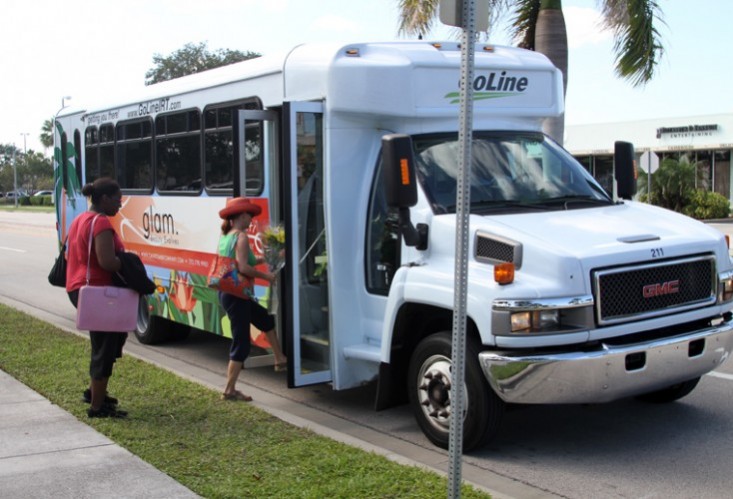
INDIAN RIVER COUNTY – A three-year extension of the county’s agreement with Senior Resource Association to continue operating the GoLine bus service was blocked today after commissioners and citizens raised concerns about lack of transparency and due consideration.
Approval of the ambiguous extension, which staff called an agreement and others called a contract, was included in the consent agenda, where it would normally have passed without comment, but Commissioner Tim Zorc asked that the item be pulled from consent agenda for discussion.
Commission Chairman Joe Flescher approved the request and said he would have pulled the item if Zorc had not.
Both commissioners had heard from constituents prior to the meeting who expressed concerns about the agreement.
During the discussion that followed, County Administrator Joe Baird said several times the agreement was more regulatory than contractual.
He said it was intended simply to reiterate and keep in place operational guidelines required by the federal government for a transportation agency to which the county passes federal grant funds.
“You have to do drug testing and vehicle maintenance and other things because you are receiving federal money,” Baird said. “You have to change the oil every so often or you lose the federal dollars.”
The requirements Baird mentioned are in the six-page agreement commissioners were asked to approve, but so is language that makes it sound a lot like a contract for services worth $1.425 million to SRA over three years.
Phil Matson, staff director for Metropolitan Planning Organization, said the agreement was for continued services from SRA but that it could be rescinded and that the selection process for a Community Transportation Coordinator for the next three years is ongoing and will be considered by MPO in coming months.
He also said the county has advertised for other brokers and providers to present qualifications to run the GoLine service but that, as of now, SRA was the only agency seeking the contract.
Commissioners Wesley Davis, Flescher and Zorc all expressed doubts about the process leading up to the agreement being placed on the consent agenda for approval without discussion and uncertainty about what exactly the agreement commits the county to.
Commissioners seemed to think the agreement should have been vetted and approved by a series of boards, including the MPO, before it came to them.
Matson seemed to be saying the boards would still vet the agreement after it was approved by the commission.
“Aren’t we kind of going at this backwards?” Davis asked.
Sebastian City Councilmember Andrea Coy went to the podium to say she had serious concerns about the agreement and the way it had been presented.
“The county has in place an MPO board that should have publically vetted this contract,” Coy said. “The public has not been given the chance to see this and discuss it. I am uncomfortable with the way the process is being circumvented here and I suggest you send this back to the appropriate boards to be vetted in sunshine.”
She asked if commissioners would consider extending the current agreement with SRA for 90 or 120 days while normal evaluation of the contract goes forward.
“These are federal requirements,” Baird said. “You can vet it all you want to, but you have to go along or you lose your federal money.”
Davis was sympathetic to Coy’s concerns and suggestion.
“Unless there is a desperate need for us to steamroll this thing, lets bring in the public and get comments,” he said.
Flescher asked Baird if an extension of the existing agreement while the MPO and others review the new agreement would threaten federal funds and Baird shook his head.
Commissioner Zorc made a motion, seconded by Commissioner Peter O’Bryan, to extend the status quo until September to allow time for a new Community Transportation Coordinator agreement to be finalized.
That motion passed 5-0.



